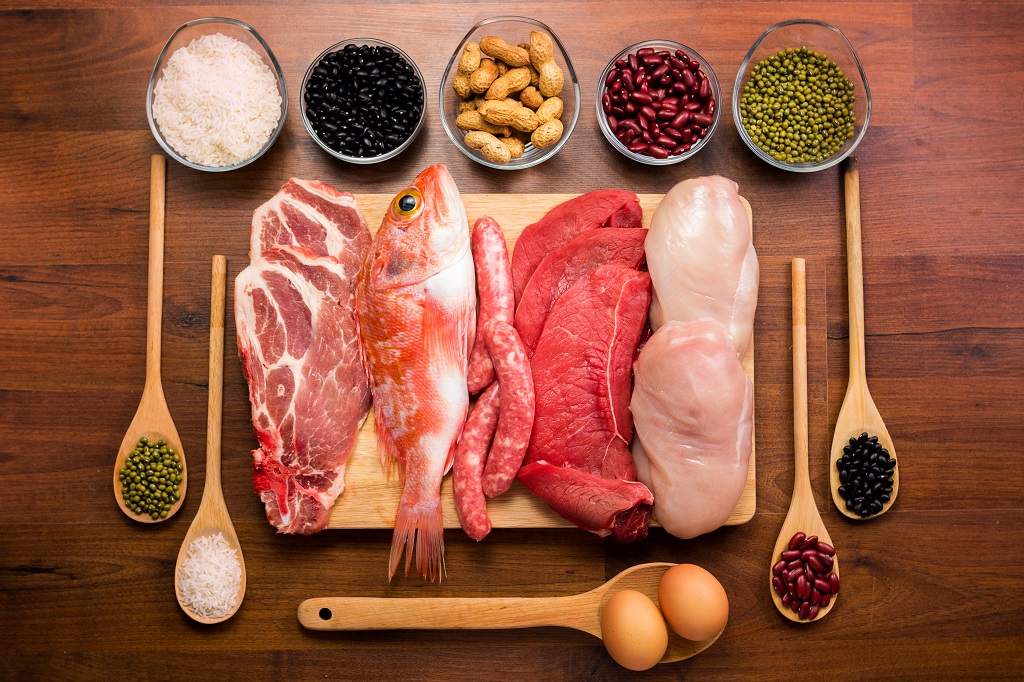New York
- Address:2972 Westheimer Rd. Santa &, Illinois 85486
- Phone:+8801761456456
- Email:[email protected]

WHY DO WOMEN NEED PROTEIN?
The Importance of Protein for Women’s Health
High-quality protein is needed for women’s health at every stage of life. Learn about the importance of protein for physical, emotional, and mental well-being with this comprehensive guide! .
PROTEIN is an essential nutrient for women, as it plays many vital roles in the body. Most importantly it helps us build muscle that supports our skeletal system and helps to burn fat (Muscle burns 3x more calories than fat). We need protein to replenish and repair the muscles especially after each workout, to help maintain existing muscle, to build muscle, for hormones and for the immune system. Protein is essential for women many reasons:
For women of all ages, protein plays an important role in overall health and wellness. High-quality protein helps build strong bones, healthy muscles, and can even contribute to emotional and mental wellbeing. This comprehensive guide outlines the importance of protein for women’s physical, emotional, and mental well-being.
What are the Benefits of Eating More Protein as a Woman?
Building and repairing tissues: Protein is essentially amino acids and the building block for many tissues in the body, including muscles, bones, skin, and hair. Women need protein to repair and maintain these tissues, especially during periods of growth, pregnancy, and breastfeeding. Women need protein for maintaining existing muscle and a for building new muscle. Protein is essential for any woman who is adding strength training to her weekly exercise regimen. When we strength train, we tear our muscle fibres. The body needs amino acids to synthesise new cells, which repair the damaged fibres and help form new, lean muscle. Research shows that protein and post-workout protein can enhance gains in muscle strength and power.

Hormone production: Many hormones are made up of proteins, including oestrogen and progesterone, which are important for women’s reproductive health. Adequate protein intake is necessary to ensure proper hormone production.
Supporting the immune system: Protein is essential for the production of antibodies and other immune system components that protect against infections and diseases.

Protein is a source of energy, and if carbohydrates and fats are insufficient, the body will use protein for energy. If we are not careful the body will deplete the muscle of protein to fuel the body with energy. We do not want our body to use protein for energy rather we want it to help sustain and or build muscle. It is important that women eat the right amount of macronutrients: protein, carbohydrates, and fats so that the body uses the protein for protein synthesis in the muscle and not for energy. However, in a situation where you are depleted in these other important macronutrients, your body can and will use protein for energy.
Boosts metabolism: Protein requires more energy to digest, metabolise, and use compared to carbs and fat. This creates a thermic effect in your body, which means you burn energy just by digesting protein. This process can actually burn up to 30 percent of the calories you take in.

Curbs your Cravings: Studies show that adding protein to every meal and snack, helps to decrease your sugar cravings so you are less likely to reach for that afternoon or late night sweet. It can lower levels of ghrelin, which sends signals to your brain to stimulate appetite. Protein also boosts your hormone levels which boosts your satiety.
Keeps your Energy Up all day: Adding protein to all your meals and snacks will keep your blood sugar levels steady, which prevents energy crashes. You will feel alert and full of energy all day long!

How much protein do we need?
Research shows that all women need to incorporate at least 3 x / week of strength bearing exercise. In order to build muscle, women need least 0.8 g -1 g of protein per kg of bodyweight. However, protein needs may increase during pregnancy, breastfeeding, and with intense physical activity such as strength training. When strength training, we suggest at least 0.8- 1g of protein per lb of bodyweight
. It’s essential to include a variety of protein sources in the diet, such as lean meats, poultry, pork, fish, shellfish, eggs, dairy products, legumes, and nuts, to ensure adequate intake of all essential amino acids. One thing to note is that some vegetable, legume and nut sources do not have a full amino acid profile and are not complete proteins. These protein sources can be very high fat and carbs so be mindful of this if choosing a vegetarian or vegan option and diet.
Author
Andrea Klas
Andrea Klas, is founder of Andrea Klas Fitness and Andrea Klas Whole Body Fitness. With over 25 years of experience as a successful competitive athlete, and 15 yrs as a Personal Trainer, and Nutrition coach Andrea knows what it takes to be fit, lean and healthy. She has revolutionised the fitness industry with her steadfast commitment to focusing on fat loss, not weight loss and has helped 100’s of women in peri-menopause and menopause lose fat and gain muscle. Compassionate and caring Andrea is committed to helping every client be fit and healthy. Andrea is an entrepreneur, mentor, trusted advisor, speaker, athlete, and mom of 3 boys and lives by her philosophy : EAT real food, LIFT weights, LOVE yourself enough to invest in your health and LIVE your best life.





